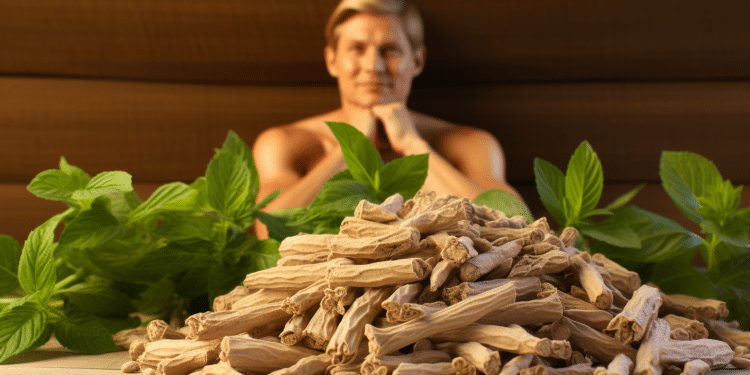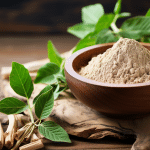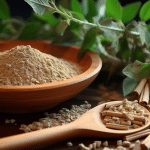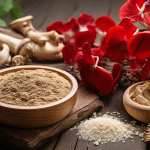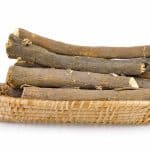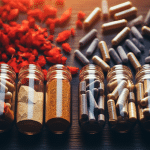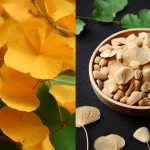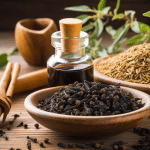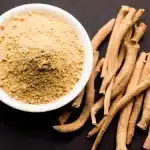What is Ashwagandha?
Ashwagandha has been called a king of the herbs in Ayurveda. It is most famous for relieving stress and anxiety. It can also moderately enhance aspects of physical performance, boost testosterone levels, and enhance reproductive health, but further studies are needed to support those effects.
Ashwagandha (Withania somnifera), also known as Indian ginseng, is an herb used in Ayurveda, Indias form of traditional medicine. Its roots smell like horses, and are said to impart horse-like strength and viability. In Sanskrit, ashva means “horse”, gandha means “smell” so you can see where it’s name comes from. Various parts of the plant are used, but the most common supplementary form is the extract from its roots.
Ashwagandha is classified as an adaptogen, meaning that it is claimed to increase your body’s resistance to stress. Rodent studies and cell culture studies have suggested ashwagandha provides a broad array of health benefits, but direct human evidence supporting most of these effects is lacking. Potential benefits of ashwagandha include improved athletic performance and sleep quality. Some studies show that the herb can help individuals with conditions such as anxiety and infertility, but more rigorous studies are needed.
Ashwagandha is one of the most important herbs in Ayurveda, a traditional form of alternative medicine that is based on Indian principles of natural healing. People have used Ashwagandha for thousands of years for relieving stress, increasing energy levels, and improving focus. Its botanical name is Withania somnifera, and it is known by a few other names, including Indian Ginseng and Winter Cherry. The Ashwagandha plant is a yellow-flowering, small shrub that is native to India and South-East Asia. Extracts or powders of the plants roots or leaves are used for various conditions, including anxiety and fertility issues.
What Does Ashwagandha Do For Your Body? Benefits of Ashwagandha
1. Could Improve Sleep Quality
Ashwagandha can be helpful in improving your sleep. Many people take ashwagandha to promote a sound nights rest, and some evidence suggests that it can aid in resolving sleep issues.
For instance, one study of 50 adults aged 65-80 found that taking 600 mg of ashwagandha root daily for 12 weeks significantly improved sleep quality and alertness after wakeup, when compared with placebo. In addition, one review of five high-quality studies found ashwagandha had a small, but significant, positive impact on general sleep quality. Taking ashwagandha reduced anxiety levels in individuals, helping them to feel more alert upon awakening. Researchers noted the results were most dramatic for those who had insomnia, and for people taking over 600 mg daily for eight weeks or longer.
2. May improve brain function, memory, and cognitive performance
Taking Ashwagandha can be beneficial for cognitive functions. A review including five clinical trials noted there was preliminary evidence ashwagandha could improve cognitive functioning in some populations, including older adults with mild cognitive impairment and those suffering from schizophrenia. Cognitive functions that may be benefitted include executive function, attention, reaction time, as well as performance on cognitive tasks.
A study of 50 adults showed that taking 600 mg of ashwagandha extract daily for 8 weeks resulted in a significant improvement on the following measures when compared with taking a placebo. Immediate and overall improvement in memory, increased focus, and speed of information retrieval and processing. Researchers have noted that compounds found in Ashwagandha, appears to exert anti-oxidant effects on the brain, potentially promoting cognitive health.
However, further studies are needed before experts can make firm conclusions.
3. May Improve Athletic Performance and Endurance
Studies show that Ashwagandha can be useful in improving sports performance, and it can be worth supplementing athletes with. One review of the studies included 12 studies in men and women taking doses ranging from 120 to 1,250 mg per day of ashwagandha. The results suggested that the herb can improve exercise performance, including strength and oxygen utilization in sports.
An analysis of five studies found that taking ashwagandha significantly increased maximal oxygen consumption (VO2max) in healthy adults and athletes. VO2 max is the most oxygen that one is capable of using in an intensive exercise. It is a measure of both heart and lung health. Having an optimal VO2 max is important to athletes and non-athletes alike. Low VO2 max is associated with increased risk for death, whereas a higher VO2 max is associated with lower risk for heart disease.
In addition, Ashwagandha can aid in increasing muscular strength. In a study, male participants taking 600 mg of ashwagandha daily and engaging in resistance training for 8 weeks showed notably greater gains in strength and muscle size than the placebo group.
4. Could Help Reduce Symptoms of Certain Mental Health Conditions
Some data suggests that ashwagandha can help to alleviate symptoms of other mental health conditions, including depression, in some populations. In one study, researchers examined the effects of ashwagandha on 66 schizophrenia patients experiencing depression and anxiety. They found that participants taking 1000 mg of ashwagandha extract per day for 12 weeks had greater reductions in depression and anxiety compared to participants taking a placebo. More importantly, results of another study indicate that taking ashwagandha can help to improve overall symptoms and perceived stress among those suffering from schizophrenia. Limited studies in 2013 also suggested that ashwagandha might help improve cognitive deficits in people with bipolar disorder.
However, further studies are needed. Also, in 2012, one study showed that stressed adults taking 600 mg of ashwagandha extract daily for 60 days reported 77% less symptoms of depression, whereas a placebo group reported 5% less. However, in that study, only one participant had a history of depression, making the results less relevant. Although some findings indicate that ashwagandha might have some antidepressant effects for certain individuals, you should not attempt to use it as a replacement for antidepressant medications. If you are experiencing symptoms of depression, talk with a health care provider so you can receive any assistance or treatments that may be needed.
What Happens When You Take Ashwagandha Daily?
Ashwagandha is a safe supplement for most people, though long-term effects are unknown. A review of 69 studies found that ashwagandha root appears safe and effective in managing some health conditions, including stress, anxiety, and insomnia. One study of 80 healthy men and women found that taking 600 mg of ashwagandha a day for eight weeks was safe and did not result in adverse health effects for participants.
However, some individuals should not take it. For instance, women who are pregnant should avoid it, as it can cause termination of a pregnancy when used at higher dosages.
Also, people who have hormonally sensitive prostate cancer, as well as people taking some medications, such as benzodiazepines, anticonvulsants, or barbiturates, should avoid taking ashwagandha. Some adverse effects have been reported in individuals taking ashwagandha supplements, including discomfort in the upper gastrointestinal tract, sleepiness, and diarrhea. In addition, ashwagandha can affect your thyroid, so people who suffer from thyroid conditions should consult with their health care provider before taking it.
Dosage recommendations for ashwagandha varies. For instance, dosages of 250-1,250 mg/day have been shown to be effective in various conditions. Consult with your health care provider if you have any questions about dosing Ashwagandha.
Research findings show that the effects of ashwagandha are not instant, so be aware that you might need to take it for a few months before you begin to see the effects. You can take ashwagandha a variety of ways, in a single dose or in several doses a day. And you can take it either with food or empty stomach. Several supplement manufacturers make it, and it is sold at a variety of retailers, including health food stores and vitamin shops.
